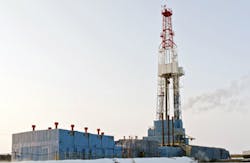USGS: No impact on groundwater quality from Williston Basin shale development
Development of shale gas and oil reserves in the United States has revolutionized the energy industry, but debate still rages over whether the activity poses unacceptable risks to the environment.
One of the concerns raised is that hydraulic fracturing may impact on water quality in the communities surrounding fracking operations. But, in one area at least, this has been ruled out.
A new report by the U.S. Geological Survey (USGS) shows that energy development in the Williston Basin oil production area of Montana and North Dakota, which includes the Bakken and Three Forks formations, has not affected the quality of shallow groundwater.
USGS scientists collected water samples from 30 non-federal domestic wells screened in the upper Fort Union Formation. These samples were analyzed and concentrations of several chemicals were compared against drinking water standards. The scientists also looked at correlations between concentrations and oil and gas well locations and evaluated methane for indications of deep production-zone gases.
"These results are good news for water users, and the data provide a valuable baseline against which future water-quality data can be compared," commented Peter McMahon, a USGS hydrologist and lead author of the study.
McMahon also noted, however, that the results should be considered in the context of groundwater age. Based on carbon-14 dating, most of the sampled water was more than 1,000 years old — predating oil and gas development in the study area.
"The groundwater age results indicate that a long-term commitment to monitoring is needed to assess the effects of energy development on groundwater quality in the Williston Basin production area," McMahon concluded.
Including groundwater-age measurements in assessing the effects of energy development on water quality helps set the data in context and could lead to more effective monitoring programs, USGS said.
